Tchaikovsky knew what he thought of the title character of his Eugene Onegin. ‘I loved Tatyana, and was furiously indignant with Onegin who seemed to me a cold, heartless fop,’ he wrote to a friend; and directors, by and large, have been happy to leave it at that. And why not? Dishy but emotionally unavailable Regency dandies have been a growth area in recent years — blame it on Colin Firth, if you like — and Eugene Onegin is probably the standard repertoire opera you’re least likely to see subjected to a directorial updating, in the UK at any rate.
Michael Boyd’s new production at Garsington certainly doesn’t update anything. Fans of the Jane Austen tendency will find riding boots and empire-line dresses galore, while for the St Petersburg ball scenes designer Tom Piper musters a parade of glittering tiaras and gold-braided uniforms worthy of the BBC’s recent War and Peace — looking all the more gorgeous since by then the audience has had dinner and the daylight that streams in on either side of the Garsington stage has faded to something a bit more atmospheric. There’s nothing here to upset any traditionalist; even an elaborate dream-ballet in which dancers form the shapes of ships and stagecoaches received appreciative applause.
In fact, Boyd is doing something far more radical, and it all centres on Roderick Williams’s performance as Onegin. And Natalya Romaniw’s Tatyana too, of course, though that’s a given. I’ve never seen an Onegin given equal depth, but that’s what Williams achieves here. Both he and Tatyana are dressed in black, alone in the colourful world around them, and while it’s unsurprising to find Tatyana sighing into a book, it’s rare to get such a sense of the inner life behind Onegin’s jaded exterior.
Williams’s ramrod poses become a defence against a prying, judgmental chorus, whether in country or city. His expression remains mask-like, with only occasional flickers of pain (and in the final scene a sudden heartbreaking flash of hope) revealing the depth of his kinship with Tatyana — which makes their repeated failure to connect even more poignant. Boyd leaves both characters alone with their thoughts and the music for extended periods, and it’s telling that for all the radiance and sensitivity of both Williams’s and Romaniw’s singing, it’s the look in their eyes at these moments that makes the most profound impression.
Inevitably, a central pairing of this intensity affects the focus of the overall performance, and while it was good to see Olga (Jurgita Adamonyte) given a moment of uncomfortable self-awareness, Oleksiy Palchykov’s Lensky, pale of voice and appearance, didn’t have enough presence while alive to bear the weight of his reappearance as a bloodied spectre (Boyd’s main innovation in the final two scenes). After a duel scene that cleverly, shockingly skews your sympathies towards Onegin, perhaps that’s unavoidable. Still, with luminous orchestral playing under Douglas Boyd — the woodwinds, in particular, sounded on the brink of articulate speech — and luxury casting of Prince Gremin (Brindley Sherratt) and Monsieur Triquet (Mark Wilde), this is a beautiful, troubling Eugene Onegin and further proof that artists aren’t always the best judges of their own creations.
Similar thoughts surfaced during Glyndebourne’s revival of Melly Still’s 2012 production of Janacek’s The Cunning Little Vixen. It’s hard to imagine a less Glyndebourne sort of person than Janacek: a chippy provincial whose swivel-eyed nationalism would surely have had this black-tied audience choking on its elderflower fizz (listen to Taras Bulba and tell me he wouldn’t have been pro-Brexit). And yet here it is, this miracle: an opera of elemental freshness and joy, so utterly without sentimentality that the shooting of a furry woodland animal passes without the slightest interruption to the life-force that pulses through every bar. It’s about life, it’s about death; it’s about sex, greed, violence, and every other sort of raw appetite. Incredibly, some people still think it’s kid’s stuff.
Still’s production is straightforward. It’s playful, and there are just enough bodily fluids splashing about (birds shit, the Vixen pisses and chicken blood goes everywhere) to offset the prettiness of Tom Pye’s set, with its glowing Hockney-esque blues and greens and huge climbing-frame of a tree. What’s new and striking is Christopher Purves’s portrayal of the Forester: brisk, direct, rolling his tongue exuberantly over each little explosion of Czech consonants, and never succumbing to the temptation to use his noble tone to sweeten Janacek’s pill. Elena Tsallagova’s sunny, unselfconscious Vixen makes a vivid foil, and it’s all swept tumbling and dancing along by Jakub Hrusa and the LPO — relishing every sting of the orchestration, every tangy harmony and splash of primary colours; making it sound, in fact, as bold and inevitable as Stravinsky. Though Janacek finds more humanity in the buzzing of a gnat than Stravinsky managed in his entire operatic career.
Got something to add? Join the discussion and comment below.
Get 10 issues for just $10
Subscribe to The Spectator Australia today for the next 10 magazine issues, plus full online access, for just $10.

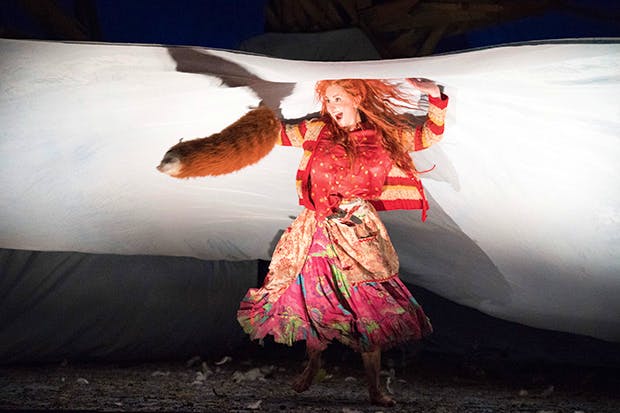

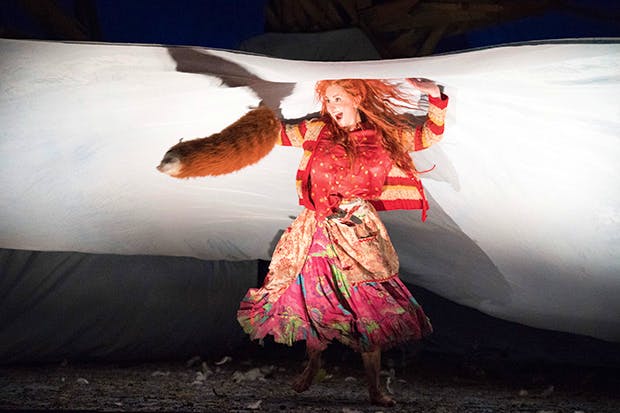

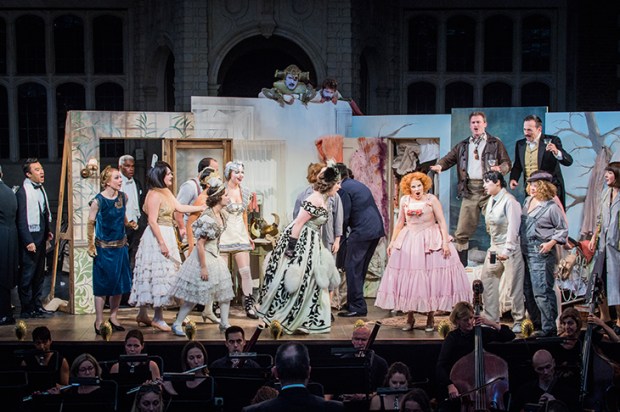
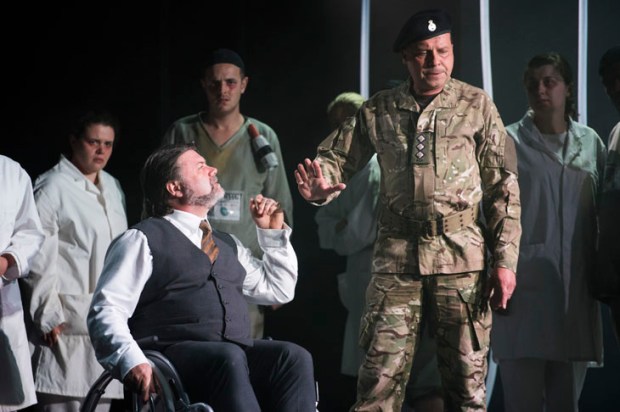
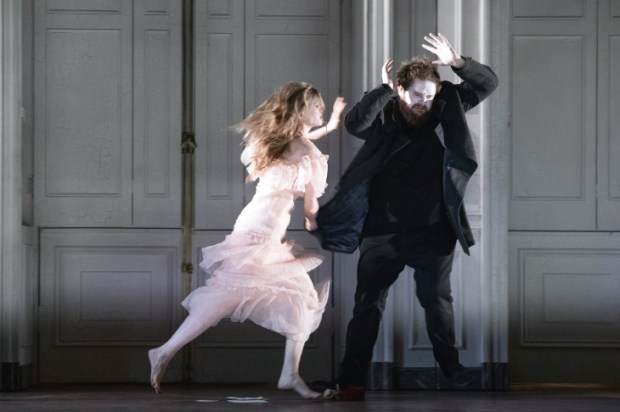






Comments
Don't miss out
Join the conversation with other Spectator Australia readers. Subscribe to leave a comment.
SUBSCRIBEAlready a subscriber? Log in